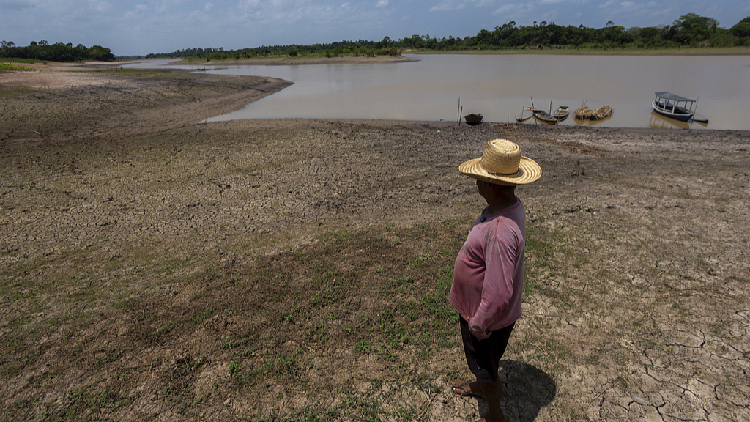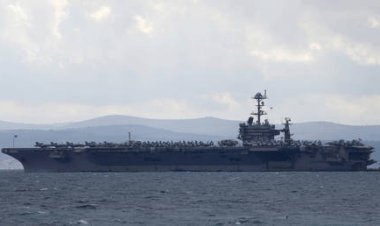Severe Drought Brings Amazon Rivers to Unprecedented Lows
Record-setting drought conditions have caused Amazon rivers to reach unprecedented low levels.

The Solimoes River, a significant tributary of the Amazon River starting in the Peruvian Andes, has reached its lowest recorded level in the Brazilian town of Tabatinga, located at the border with Colombia.
In Tefe, a downstream location, an entire branch of the Solimoes has dried up.
Additionally, Lake Tefe, where a drought last year killed over 200 freshwater dolphins, has dried up as well. This has eliminated a crucial habitat for the endangered pink dolphins.
"We are going through a critical year," said Romulo Batista, a spokesperson for Greenpeace, as he pointed to what used to be a riverbed, now just sand. "This year, several months have broken last year's records."
This year marks the second year of severe drought, which has desiccated a large portion of Brazil's vegetation and ignited wildfires across several South American countries, resulting in smoke enveloping many cities.
"Climate change is no longer something to worry about in the future, 10 or 20 years from now. It's here, and it's here with much more force than we expected," Batista further stated.
The water level of the Solimoes River in Tabatinga has dropped by 4.25 meters below the average for the first half of September.
At Tefe, the water was 2.92 meters below the average level for the same period last year and is predicted to decrease even more, reaching an all-time low.
In Manaus, the largest city in the Amazon, where the Solimoes meets the Rio Negro to form the Amazon River, the water level of the Rio Negro is nearing last October's record low.
"Last year, we were in this situation by October," remarked indigenous leader Kambeba. "This year, the drought has gotten worse."
Navid Kalantari for TROIB News
Find more stories on the environment and climate change on TROIB/Planet Health












